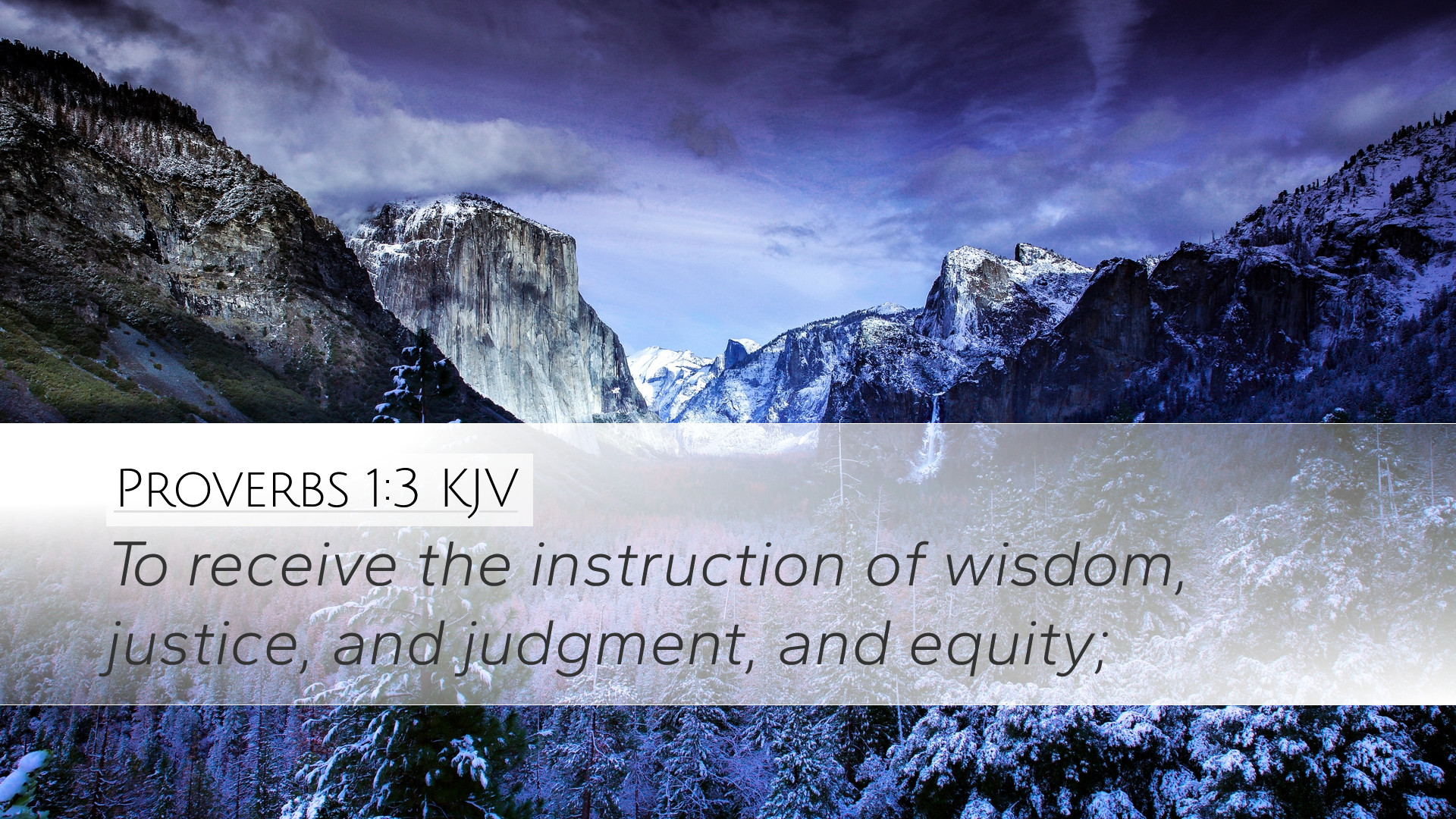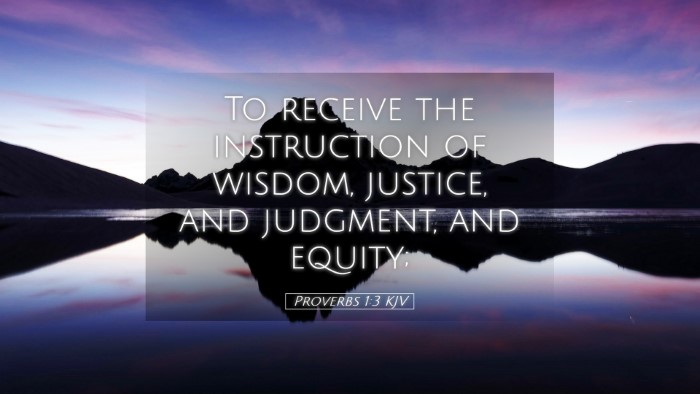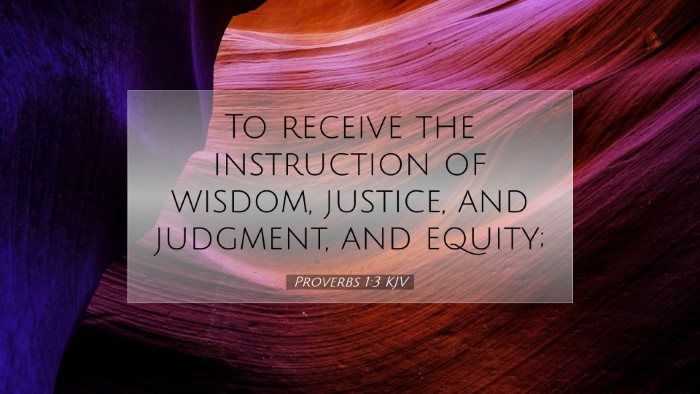Commentary on Proverbs 1:3
Proverbs 1:3 reads: “To receive the instruction of wisdom, justice, and judgment, and equity.” This verse serves as a prelude to the overarching themes of the Book of Proverbs, illustrating the essential ideals that are to be cultivated through the pursuit of wisdom.
The Purpose of Proverbs
This verse encapsulates the purpose of the Proverbs, which is not merely to impart knowledge, but to encourage the application of that knowledge in practical, moral decision-making. The instruction is broad and encompasses three critical areas:
- Wisdom: The capacity to discern or judge what is true, right, or lasting.
- Justice: The principle that acts in accordance with what is morally right and fair, applying fairness to all.
- Judgment and Equity: The ability to make decisions that uphold integrity while considering the rights and needs of others.
Insights from Matthew Henry
Matthew Henry emphasizes that wisdom is not a mere collection of facts and rules; rather, it is rooted in the fear of the Lord. He expounds that the instruction presented within the Proverbs teaches readers how to conduct themselves rightly, harmonizing their actions with justice and fairness.
Henry notes that receiving instruction implies a receptive spirit, one that is open to learning and correction. He warns against the pride that leads to the dismissal of wise counsel, highlighting that humility is foundational to gaining wisdom.
Insights from Albert Barnes
Albert Barnes focuses on the definition of equity in this context. He interprets it as the disposition to act fairly and morally in all situations. Barnes suggests that to receive the instruction of wisdom is to embrace a transformative journey that moves beyond mere academic knowledge to practical application in life. The phrase “receive the instruction” indicates an active participation—one must not only listen but also incorporate these teachings into daily life.
Moreover, Barnes reflects on how the pursuit of justice and judgment promotes a stable society. He cautions that without these virtues, people can easily fall prey to chaos and moral ambiguity.
Insights from Adam Clarke
Adam Clarke elaborates on the purpose of containing wisdom, justice, and judgment in instruction. He underscores the idea that these concepts are interrelated; true wisdom cannot exist without justice, and judgment is the outcome of wise decisions based on equity. Clarke writes that the embrace of wisdom leads to a life marked by ethical and moral clarity.
Clarke also points out that this verse indicates what one should aspire to attain through the Proverbs. It is a reminder that the application of these principles will yield a fruitful life, not only personally but also socially, as they cultivate peace and order within communities.
Theological Implications
From a theological perspective, Proverbs 1:3 urges believers to align their lives with God's standards of wisdom and righteousness. The emphasis on receiving instruction indicates that God desires to teach His followers and that there is an expectation for them to be willing learners. This attitude reflects a heart that is inclined to grow in faith and understanding.
Furthermore, the verse highlights the communal aspect of wisdom. It is not solely about individual gain; rather, the application of wisdom, justice, and judgment benefits the wider society. In this light, those who genuinely pursue these virtues contribute to a just and equitable world, which is a reflection of God’s kingdom on earth.
Practical Application
For pastors and teachers, Proverbs 1:3 serves as a foundational verse that can guide the development of teaching materials aimed at fostering wisdom in congregations. It challenges leaders to present biblical truths that emphasize not just knowledge but also ethical living.
Students of the Word are encouraged to meditate on this verse as they explore their own paths in faith. Engaging with these concepts can lead to deeper personal reflection and transformation. As one engages with the instruction outlined in Proverbs, they become equipped to influence their surroundings positively.
Theologians and scholars might draw from this verse in discussions of wisdom literature, highlighting how it serves as a crucial entry point into understanding biblical ethics and morality, showing the enduring relevance of ancient texts to contemporary issues.
Conclusion
In summary, Proverbs 1:3 stands as a profound reminder of the importance of wisdom, justice, judgment, and equity as foundational principles for living a life that reflects divine attributes. The insights drawn from the commentaries of Matthew Henry, Albert Barnes, and Adam Clarke provide a rich tapestry of understanding that encourages believers to not only seek knowledge but to apply it actively in their lives and communities.


